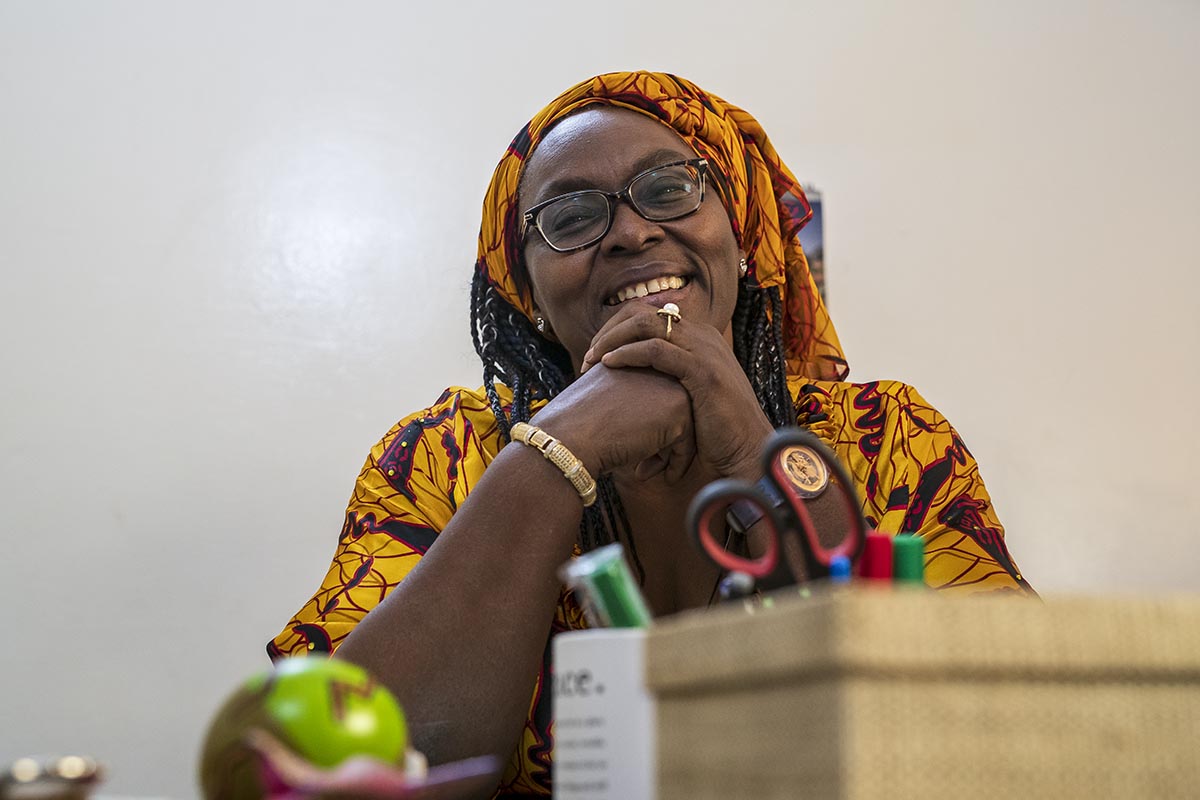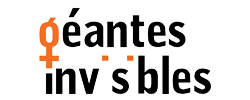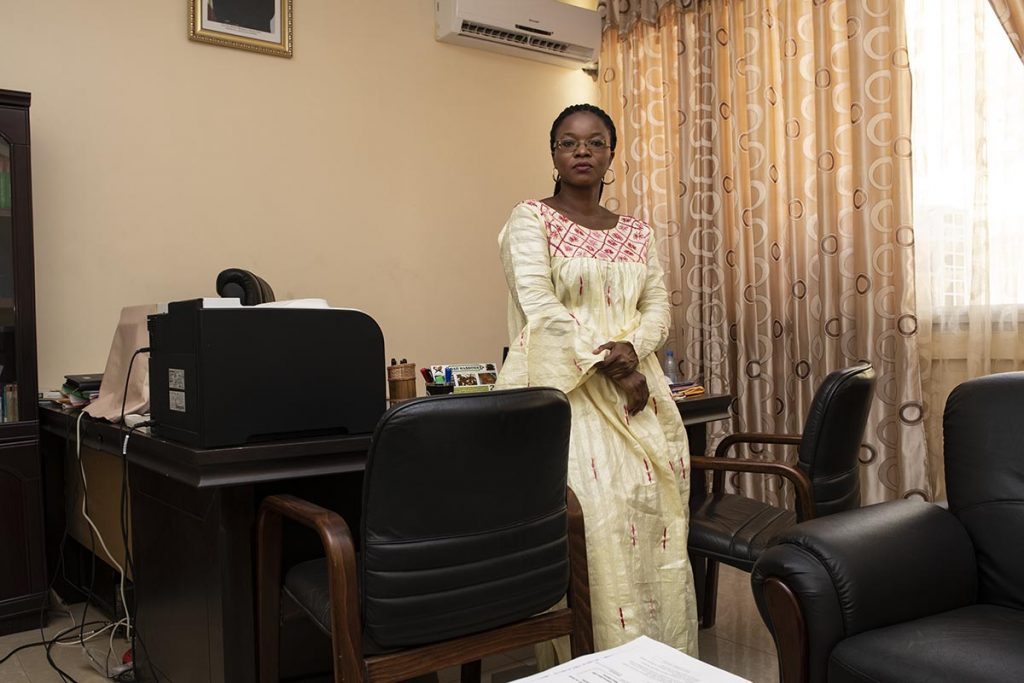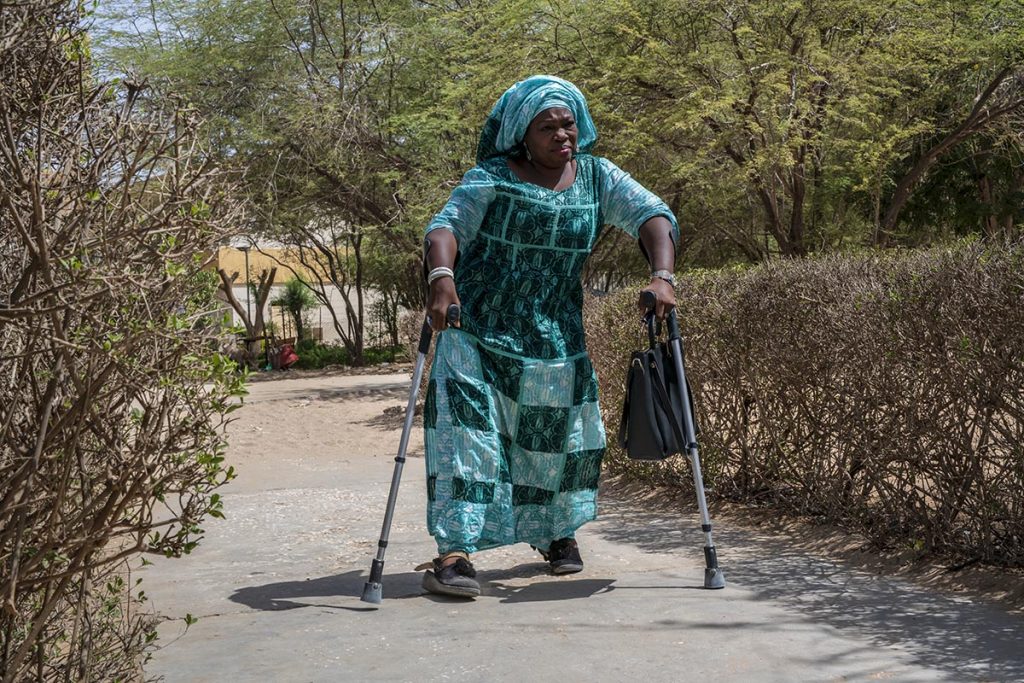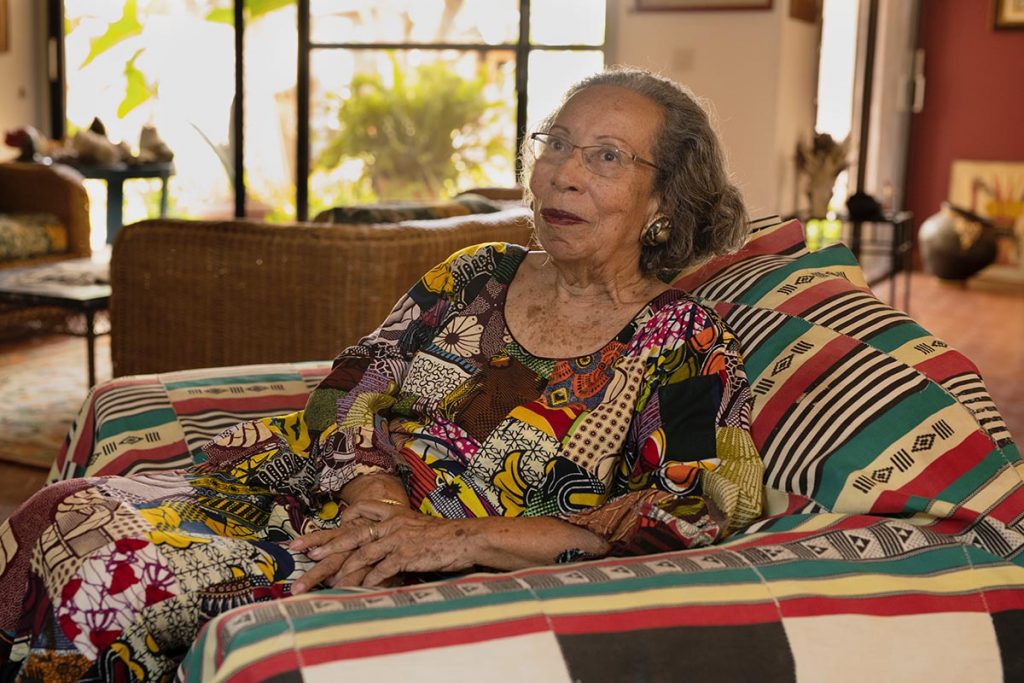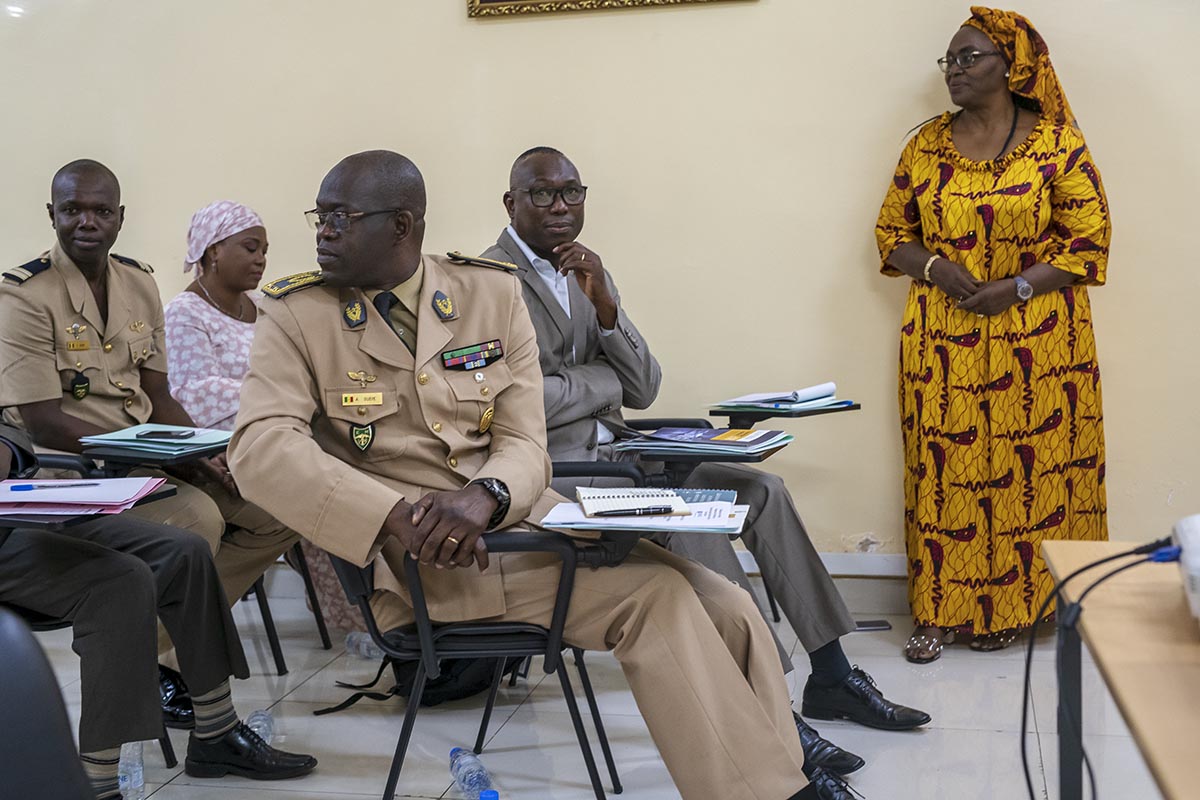
Of disarming willpower
Courageous and determined Giant, is engaged in peace and in creating awareness of the danger linked with small weapons in Africa.
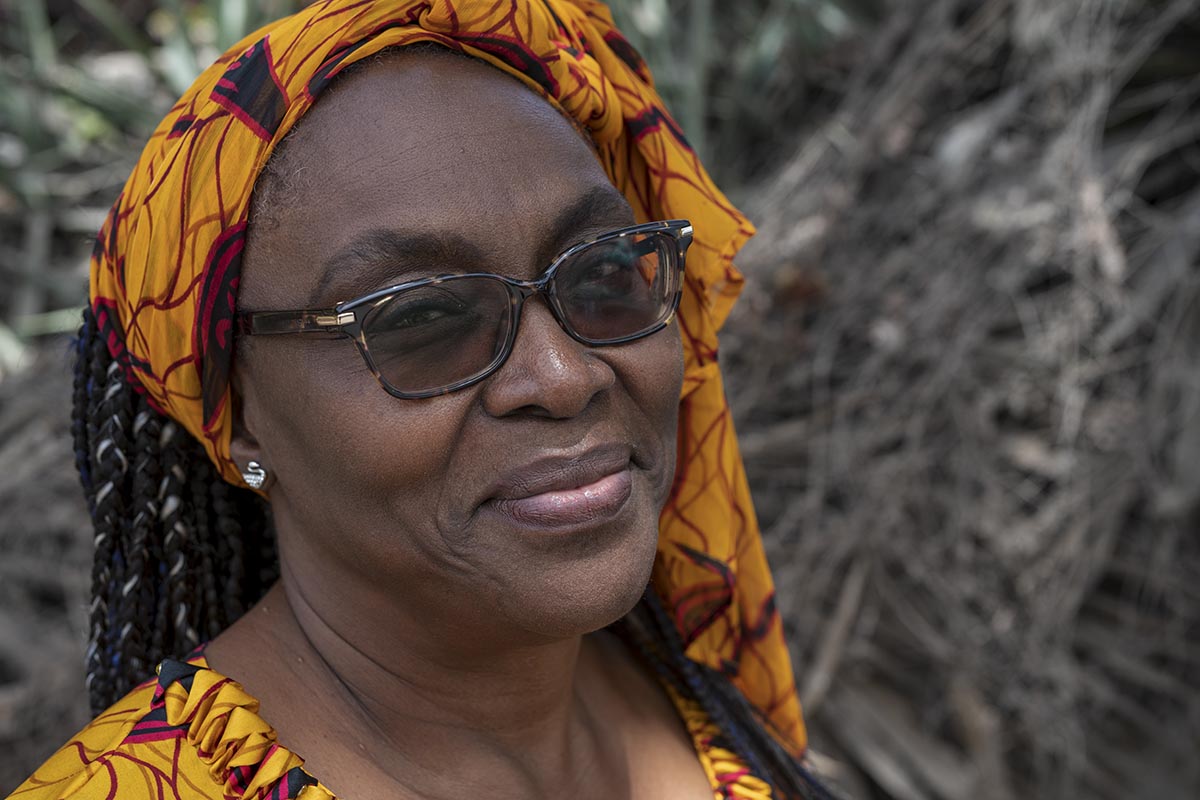
Daughter of a mother one of the first feminists activists in Benin and of a father who raised her and her three male siblings to be at a young age sensitized on issues of equality and the role of women in society. Through her union with Alain Agboton, a journalist, she discovered the fascinating world of media and defense of Human Rights.
How did a dental surgeon who taught at the Cheikh Anta Diop University in Dakar come to oppose the spread of weapons?
Christiane is actively involved in her church women’s group. There was an opportunity to attend a meeting in Ghana on the issue of weapons in the sub-region, she was selected due to her mastery of English and was the first time she was exposed to matters of the military. This was in September 1998.
In early 1999, she became involved in security issues by participating in a regional workshop in Bamako. This led to the creation of the Movement Against Light Weapons in West Africa (MALAO) with a diverse and committed team including Penda Mbow, Gisèle Quenum and Alain Agboton. “It is my faith in God that has kept me in this cause … I believe that God is the master of life … there is no reason why just because someone has a weapon in his hands, he can say I am taking another’s life.” said Christiane on her motivation around this work. This is also how she came to work with the defense and security forces, going to the headquarters and launching the activities of the NGO.
Christiane Agboton Johnson is passionate about her work and this took her Casamance to gain a better understanding of the reality people faced. She met the stakeholders: political figures, defense and security forces officials, leaders of the Movement of Democratic Forces of Senegal and civilians; one observation was obvious: women were at the forefront, working on the issues of spread and circulation of light weapons.
“It was these local women, who would meet the different factions, go everywhere without fear and carry messages: what use are these weapons to us?
We don’t make them, we kill ourselves with them, we get into debt, because once we’ve killed ourselves and destroyed our infrastructure, we will have to rebuild. Trust, peace and harmony are difficult to rebuild! This is why women’s leadership is essential in issues of peace and security! »
Children and youth are also a key target of MALAO’s program work.
Children and youth are also a key target of MALAO’s program work.
MALAO began working at the national level in Dakar and locally in Casamance even before the National Commission was created; as early as 2000, MALAO worked to push Senegal to set up a body to deal with the issue of light weapons, leading to the creation of the National Commission for the Fight against Spread and Circulation of SALW based at the Ministry of Armed Forces. At the West African level was created the West African Network RASALAO and especially the ECOWAS Convention. “We can say that the civil society and its recommendations initiated the ECOWAS Convention, which is truly a pioneering document”.
She spent a lot of time and travel representing these issues outside of her other professional duties. In 2007, she applied for the position of Deputy Director at the United Nations Institute for Disarmament Research (UNIDIR) in Geneva and was hired in 2008. She had nothing more to prove as a dentist and formally left practice.
At UNIDIR, she was proud to have contributed to the design and voting mechanism by the UN General Assembly of the Arms Trade Treaty, through seminars held around the world and the documentation brought to diplomats prior to each major negotiating meeting.
She returned to Senegal after four years with the idea of creating a structure linking the Defense and Security Forces and civilians. It was then that she was invited to participate in the conceptualization of the Center for Advanced Defense and Security Studies, CHEDS.
The CHEDS has been in existence since 2013 and, through its human security option, trains various actors in defense and security issues, conducts research and creates spaces for exchange and dialogue. As the Advisor first, then evolving to Director of Special Programs, she was keen to set up a program focused on women whose great expertise in the field is little capitalized and who are rarely found at peace negotiation tables.
Dr. Christiane Agboton Johnson strongly believes in women’s leadership in defense, security and peace issues.
